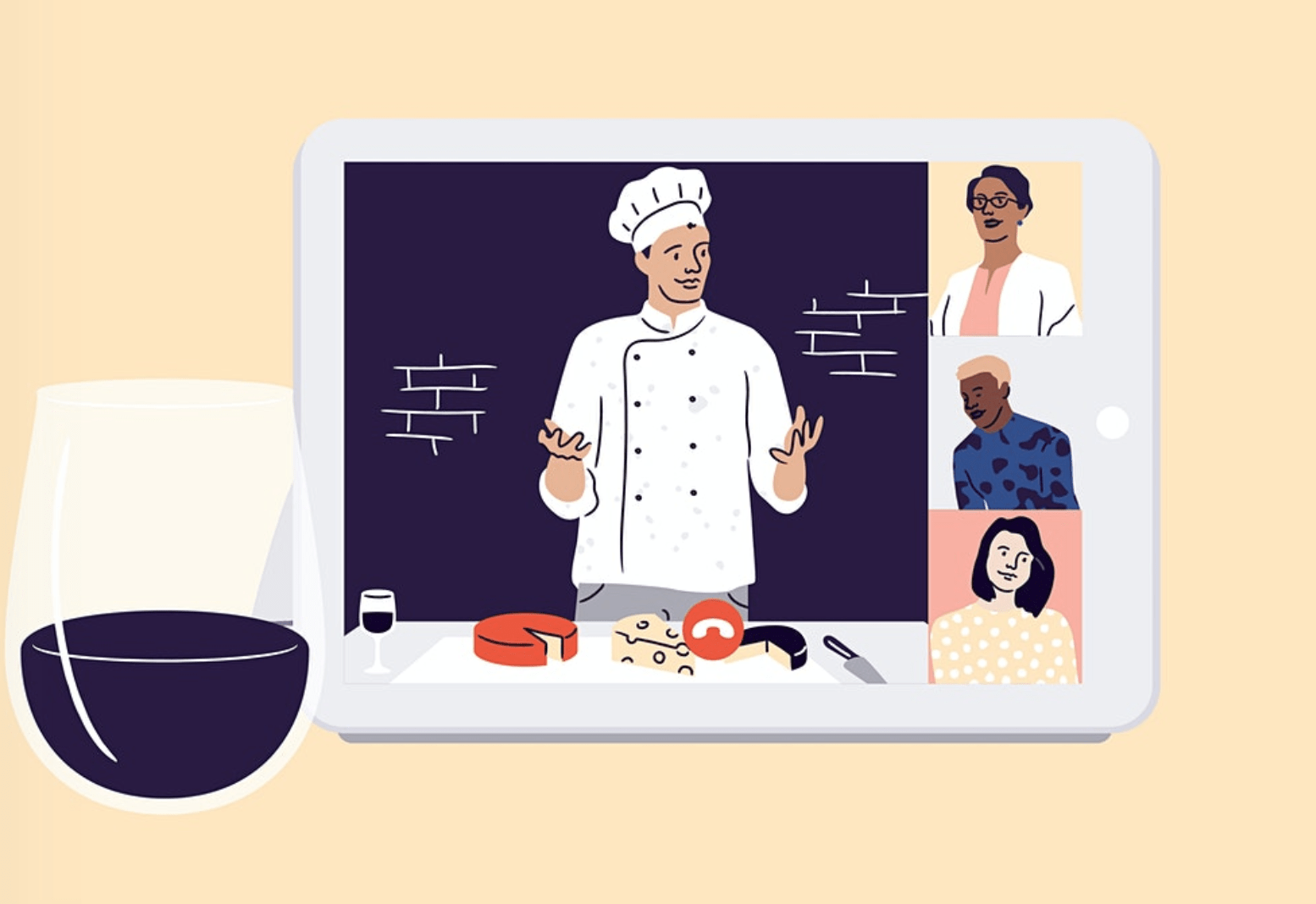Despite the current worldwide pandemic, the last two months have been some of the busiest for Bow Market – a retail and food space in Somerville, Massachusetts.
“We have tons of different kinds of shoppers coming through,” says Leah Pringle, the venue’s event coordinator. “We’re seeing new faces and so many people who have never even heard of Bow Market before.”
In the past, she’s helped put on book fairs, jewellery pop-ups, family photo days, vintage markets, and record sales, but now, ever since the COVID-19 pandemic has turned daily life topsy-turvy, she’s found a new duty to take on at work. Dubbing herself “the gatekeeper” of Bow Market’s courtyard, Pringle now spends most of her time outside, greeting and welcoming the shoppers who have come to buy produce and other essentials at the venue’s newly created Safe Supply Outdoor Grocery Markets.
Similar to a farmer’s market, the events – which happen multiple times a week – take precautions up a notch, offering shoppers the chance to buy groceries in a safe and controlled environment. Face masks, as well as reservations on Eventbrite, are mandatory, and the use of credit cards is “strongly preferred.”
“You have to make shoppers feel really comfortable as soon as they get here,” Pringle says of her new role coordinating the Safe Supply markets. “You have to explain how it’s going to happen, and you have to do it in a playful manner and make it fun. The psychology behind it is we’ve turned it into a board game setting. We even do trivia when the line gets long.”
Bow Market is an old stone storage unit that was repurposed into a multi-use outdoor shopping centre in 2018. Under normal circumstances, it hosts a range of more than 30 vendors that run the gamut from restaurants and art galleries to comedy studios, breweries, and wine bars.
Now, those individual shops are closed due to the pandemic, but thanks to Bow Market’s quickly concocted Safe Supply markets – which have been happening since March 21 – vendors still have a way to make sales and offload their fresh, edible products.
To attend, shoppers make a reservation on the venue’s Eventbrite page, which allows 26 people to RSVP per half-hour slot, with events running from 10 a.m. to 4 p.m., no less than three times a week.
In the early days of Bow Market’s Safe Supply Outdoor Grocery Stores, the organisers used feedback from shoppers on how to improve and strengthen the security and safety of their events.
“We were hearing from more and more people who were letting us know how unsafe they felt at grocery stores, which hadn’t yet figured it out,” Pringle says. “So it just blossomed into this need to get people fed safely, efficiently, and if they can support local in the process, then let’s do it.”
Bow Market has since made a free, downloadable Safe Supply field guide available, laying out the protocol and lessons it’s learned along the way for other marketplaces and farmers’ markets to adopt. For example, it’s learned that shoppers find it helpful to get emails listing the items vendors will be selling before the event so they can plan their shopping lists ahead of time.
“Our goal here is to spread the word of the Safe Supply model. We want people to adopt this as a way that makes sense for them, to help them re-open safely in that regulated manner,” Pringle says.
So far, their guide has been downloaded more than 100 times across the US.
Grocery supplies aside, a number of restaurant and food event creators have similarly risen to the challenges that COVID-19 has created. With people quarantining at home, restaurants can’t sell meals as easily (if at all), and in-person cooking classes have come to a halt. Whereas Bow Market adjusted by taking things outdoors to make their business model work, others are turning to online platforms to keep their customers happy and fed.
Perk’d Up Burger – a London-based takeaway that’s passionate about flavour – is selling Build Your Own Burger Kits via Eventbrite for doorstep delivery across the city. Each kit contains enough ingredients for four burgers – all beef, all veggie, or two of each. Plus, they’re loaded with unique condiments like espresso plum jam, whisky butter mayonnaise, or the restaurant’s signature wagyunnaise sauce.
In South Oxfordshire, Mrs Bun the Baker has transitioned from teaching children’s baking classes in-person to teaching them online. With classes on sandwich biscuits, burritos, and pizza puffs, her lessons are packed with tasty teatime treats that are easy to master at home.
Many others have also shifted their brick-and-mortar cooking courses to online classrooms. To help people liven up their home cooking, chefs and food-lovers have put together virtual cooking lessons for almost every cuisine, whether it’s Italian gnocchi or Japanese sushi.
Chocolatier Seed Chocolate has also found a way to work around the limitations of quarantine life. Before COVID-19, the award-winning company would host bespoke tasting experiences. But now it, too, has transitioned online, streaming chocolate-themed webinars to introduce people to its bean-to-bar products. Instead of showing up in person, chocoholics RSVP on Eventbrite and are then posted an experience pack filled with chocolate bars and organic cocoa nibs.
Back across the pond and Bow Market’s Safe Supply Outdoor Grocery Stores similarly add a modicum of regularity to its shoppers’ lives. Before this pandemic happened, shoppers may not have had to wear a face mask or stand in chalk-drawn circles, but these new events allow them to experience the same camaraderie and social interaction of a traditional market.
“People are coming out for their essential goods, but they’re also using it as their day out,” Pringle says. “They’re meeting a friend, standing six-feet apart, but still shopping together for a half-hour, chatting about what they’ve been doing all week, the different wines they’re going to drink later, the flowers they plan on getting, and then they part ways.”
Those in the food industry have also found that their newly adopted business models can provide insight in ways that their regular means of operation might overlook. Through reviewing sales, Bow Market has been able to hone its offerings to better meet the needs and desires of its customers who often ask for things they can’t find or would like to see more of. And, at least for the time being, that has translated into supplying fresh flowers, offering potted herbs that can be transplanted into gardens, and procuring as many eggs as humanly possible.
These recently concocted ventures probably won’t be our new normal forever, but they have provided valuable lessons to those in the food industry looking to expand and broaden their businesses.
If anything, they’ve proven that even in times when it seems like every opportunity has been blocked or taken away, there is hope. All it takes is a bit of creative thinking, guidance from your customers, and, of course, good food.






